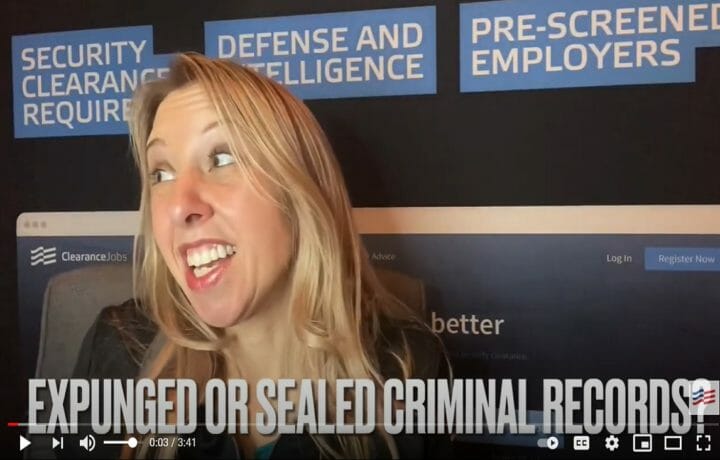Criminal conduct is not a top cause of security clearance denial. But it is a top cause for security clearance applicants to lie or withhold information on their SF-86, with fears that college arrest will preclude them from holding a security clearance when the reality is far from it. Many of the ‘lies’ come as the result of a lot of internal justifications for why the applicant didn’t need to list the arrest – they were placed into a police vehicle, but didn’t realize they were ‘arrested.’ The incident happened when they were a minor, so they didn’t think it needed to be reported. Or they were involved in an incident overseas or on an OCONUS military installation, so they didn’t think it needed to be reported.
In all of these cases, the withholding of information is worse than being forthcoming about your criminal past.
The issue of expunged or sealed records makes it even more complicated, and new legislation expected to be signed into law in the state of Virginia may cause even more security clearance holders and national security workers to try to avoid listing prior arrests in their applications with the government. Earlier this month Virginia lawmakers voted on legislation that had long been stalled in the state, and that would automatically seal the records for nine misdemeanor charges after seven years had passed, if the person wasn’t convicted of any other crimes. In addition to the automatic sealing of records, the legislation would also allow criminals to petition the court to have other records sealed or expunged. While yet to be signed, the legislation has been pointed to as a means of ensuring criminals aren’t punished in housing or employment decisions due to arrests from years prior.
It’s worth noting that even the legislation includes exceptions for national security employment. But it’s a reminder that for any individual with criminal conduct issues in their past, expungements and sealed records don’t mean the incidents don’t have to be listed.
In filling out the SF-86, it’s worth noting that the criminal conduct questions typically state, ‘ever’ – and ever means ever – it doesn’t mean, if it happened but the record doesn’t exist. In addition, it’s worth noting that the government can and generally does find out about incidents even if they were sealed or expunged – many local law enforcement agencies will not file the paperwork to remove the record from your FBI rap sheet.
The good news for security clearance applicants and national security workers is that the same issues that could be expunged or sealed are generally non-issues for a security clearance determination.




